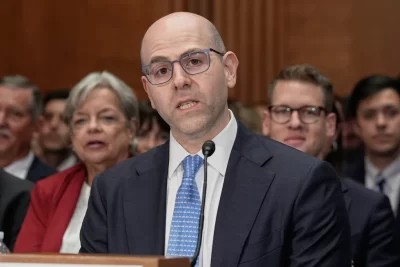
Former British finance minister Alistair Darling, a central figure in the U.K.’s response to the 2008 financial crisis who later helped organize the campaign against Scottish independence, has died. He was 70.
Darling had been treated for cancer and died in a hospital in Edinburgh, his family said in a statement on Thursday. He served as Britain’s Treasury chief between 2007 and 2010 under Labour Prime Minister Gordon Brown, who praised him as a “popular and effective’’ government minister.
Though Darling held a variety of posts during his 28 years in the House of Commons, he is likely to be remembered most for his work in steering the nation’s finances during the global credit crunch. The package of measures he implemented were credited with preventing an even more dramatic slide after the crisis threatened the nation’s banking system.
“Alistair will be remembered as a statesman of unimpeachable integrity whose life was defined by a strong sense of social justice and who gained a global reputation for the assured competence and the exercise of considered judgment he brought to the handling of economic affairs,” Brown said.
When Scotland held a referendum on whether to leave the United Kingdom and become independent in 2014, Darling was appointed to chair the “Better Together” campaign. Voters backed remaining in the U.K. by a margin of 55% to 45%.
Former Scottish National Party leader Alex Salmond, who led the pro-independence campaign in the referendum, remembered Darling as a “hugely significant figure in U.K. politics” and “an extremely courteous man.”
Former Prime Minister Tony Blair, who appointed Darling to several government roles between 1997 and 2007, said he had been “highly capable, though modest, understated but never to be underestimated, always kind and dignified even under the intense pressure politics can generate.”
“He was the safest of safe hands. I knew he could be given any position in the Cabinet and be depended upon,” Blair added.




